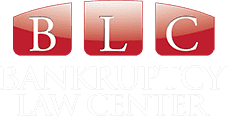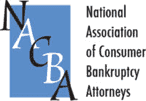
In today’s fast-paced world, financial stability has become a cornerstone for individuals seeking safety and security in both their personal and professional lives. As the volume of financial transactions continues to grow exponentially, it is imperative that one maintains an organized system to efficiently manage various aspects of finance.
One area where this organizational skill can be applied with great success is email communication - specifically, maintaining a clean inbox. By streamlining incoming messages related to finances, individuals can not only enhance productivity but also boost their sense of control over their monetary affairs.
A well-organized inbox serves as the foundation upon which long-term financial success can be built. Research conducted by financial analysts suggests that those who maintain orderly email inboxes are more likely to have a better understanding of their current fiscal situation and make informed decisions regarding future investments or expenses.
This article delves into the importance of having a systematic approach towards managing emails pertaining to finances and offers practical tips on how incorporating simple habits like labeling, filtering, archiving emails can lead to increased efficiency when dealing with money matters.
Streamlining Email Subscriptions
Consider the case of a financially savvy individual who subscribes to numerous investment newsletters, market updates, and personal finance blogs. Over time, their inbox becomes cluttered with these subscriptions, making it difficult to keep track of important financial communications or efficiently manage their finances.
Streamlining email subscriptions can be an effective solution in such situations by reducing clutter and ensuring that only relevant information reaches the individual’s inbox. Unsubscribe benefits include improved focus on essential content and more efficient time management.
One approach to streamlining email subscriptions involves prioritizing which sources offer valuable insights and customized content specific to one’s financial goals. By decluttering their inbox through removing irrelevant or repetitive subscriptions, individuals allow themselves to allocate time towards analyzing significant information related to their financial well-being.
Clutter reduction also enables better organization of critical notifications from banks, brokerage accounts, tax authorities, etc., preventing missed deadlines and promoting overall financial health.
Adopting An Email Folder System
Transitioning from the topic of streamlining email subscriptions, it is crucial to delve into another fundamental aspect of organizing finances through a clean inbox: adopting an efficient email folder system.
A structured approach towards managing emails can significantly impact one’s ability to maintain financial stability and security. Email prioritization plays a pivotal role in ensuring that important messages related to personal finance are not lost amidst the clutter.
By utilizing folder customization options provided by most email service providers, users can create designated folders for various categories such as bills, investments, tax documents, and bank statements. Automated rules can further enhance this process by automatically sorting incoming emails based on specific criteria like sender information or subject line keywords.
Achieving Inbox Zero - having no unread or unprocessed emails in your main inbox - becomes feasible with these sorting techniques implemented consistently over time. This organized framework aids individuals in staying up-to-date with their financial commitments while simultaneously fostering an environment conducive to making informed decisions regarding monetary matters.
Regular Inbox Maintenance
In the pursuit of financial stability, a clean and organized inbox can be instrumental in maintaining productivity. Regular inbox maintenance ensures that important financial information is easily accessible while eliminating distractions from non-essential emails. To achieve this level of organization, several strategies may be employed.
One such approach to regular inbox maintenance involves combining email categorization and prioritizing emails for efficient retrieval. Email filters are an essential tool for achieving these objectives. By utilizing filters effectively, one can create automated processes that sort incoming messages into appropriate categories or folders based on predefined criteria. This allows users to focus their attention on high-priority items within a designated folder without being overwhelmed by less relevant content.
The following nested bullet point list outlines three key steps in implementing this strategy:
Step 1: Implementing Inbox Decluttering
Identify repetitive or unimportant messages that consistently occupy valuable space.
Create rules or filters to automatically file away these types of emails upon receipt.
Step 2: Utilizing Email Categorization
Determine which categories are most useful for organizing your specific finance-related correspondence (e.g., banking statements, investment updates).
Set up filters/rules to auto-sort new messages into these predetermined categories.
Step 3: Prioritizing Emails with Filters
Adjust filter settings so that critical notifications appear at the top of the message list.
Label urgent matters accordingly for easy identification among other categorized emails.
By employing these techniques, individuals can ensure they maintain control over their virtual environment and dedicate undivided attention towards managing personal finances more effectively. The resulting clarity achieved through systematic inbox decluttering will contribute significantly to increased productivity when addressing financial concerns – providing a sense of safety and reassurance as progress is made toward long-term goals.
Utilizing Financial Management Tools
Transitioning from the importance of regular inbox maintenance, another essential component in organizing finances is leveraging financial management tools.
As technology continues to advance, individuals are presented with numerous options designed specifically for improving their overall financial health.
Budget tracking apps and digital wallets can significantly contribute to better money management by providing users with an overview of their spending habits, allowing them to set limits on various expense categories.
Furthermore, investment tools enable individuals to efficiently manage their portfolios, while expense categorization aids in identifying areas where adjustments may be necessary to maintain a healthy financial state.
Through diligent utilization of these resources and consistent attention towards financial goal setting, one can create a sense of security and establish a solid foundation for future prosperity.
Conclusion
In conclusion, organizing and maintaining a clean inbox is essential for effective financial management. By streamlining email subscriptions, adopting an email folder system, performing regular inbox maintenance, and utilizing financial management tools, individuals can efficiently handle their finances with ease.
A study conducted by The Radicati Group reveals that the average office worker receives around 121 emails per day. This staggering statistic underscores the importance of managing one’s inbox to ensure that crucial financial information does not get lost in the clutter.
Implementing these strategies will prove beneficial in establishing control over personal finances and reducing stress caused by disorganization.










